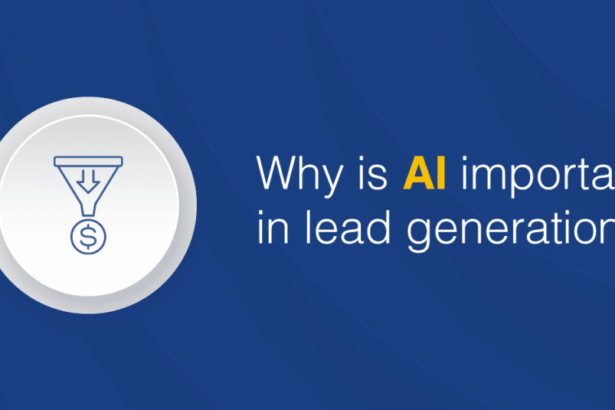Artificial intelligence (AI) is transforming the world of marketing, especially when it comes to lead generation. With AI-powered tools, businesses can now automate various aspects of their lead generation process, from identifying potential customers to engaging with them through targeted messages. However, as with any technology, there are ethical concerns that arise when AI is involved. In this blog post, we will explore the ethics of AI-powered lead generation and discuss how businesses can balance automation and human interaction to ensure ethical practices.
The Rise of AI-Powered Lead Generation
AI has rapidly become an essential tool for lead generation, with many companies leveraging the technology to gain a competitive edge. AI-powered lead generation tools can analyse vast amounts of data, from social media activity to website behaviour, to identify potential customers and their interests. By automating much of the lead generation process, AI can also help businesses streamline their operations and save time and money.
However, with the rise of AI-powered lead generation comes a host of ethical concerns. One of the most significant concerns is the potential for bias in the data and algorithms used to power AI systems. For example, if an AI tool is trained on data that reflects gender or racial biases, it may inadvertently perpetuate those biases when identifying potential customers. Additionally, automated messaging tools may engage with potential customers in ways that are perceived as invasive or spammy, which can damage a company’s reputation and harm relationships with customers.
Balancing Automation and Human Interaction
To address these ethical concerns, businesses must balance automation and human interaction in their lead generation processes. Here are a few ways to do so:
Ensure Diverse Data Sources
To mitigate the potential for bias in AI-powered lead generation tools, businesses must ensure that the data used to train these tools is diverse and representative of the population. This can be achieved by incorporating data from a variety of sources and regularly auditing the data for biases.
Personalize Automated Messaging
Automated messaging tools can be a powerful way to engage with potential customers, but they must be used judiciously. To avoid coming across as spammy or invasive, businesses should personalize their messages and ensure that they are relevant to the recipient’s interests and needs.
Use Human Oversight
While AI-powered lead generation tools can automate much of the lead generation process, it’s essential to have human oversight to ensure that the tools are functioning ethically. By having human marketers review and adjust AI-generated insights and recommendations, businesses can ensure that their lead generation processes are not perpetuating biases or engaging with potential customers in ways that could be perceived as invasive.
Respect Data Privacy
One of the most important ethical considerations in AI-powered lead generation is data privacy. Businesses must ensure that they are collecting and using customer data in a transparent and ethical manner, following relevant laws and regulations such as GDPR and CCPA.
Conclusion AI-powered lead generation has the potential to revolutionize how businesses attract and engage with potential customers, but it’s important to do so in an ethical and responsible manner. By balancing automation and human interaction, ensuring diverse data sources, personalizing automated messaging, using human oversight, and respecting data privacy, businesses can leverage AI to generate leads while maintaining ethical practices.










